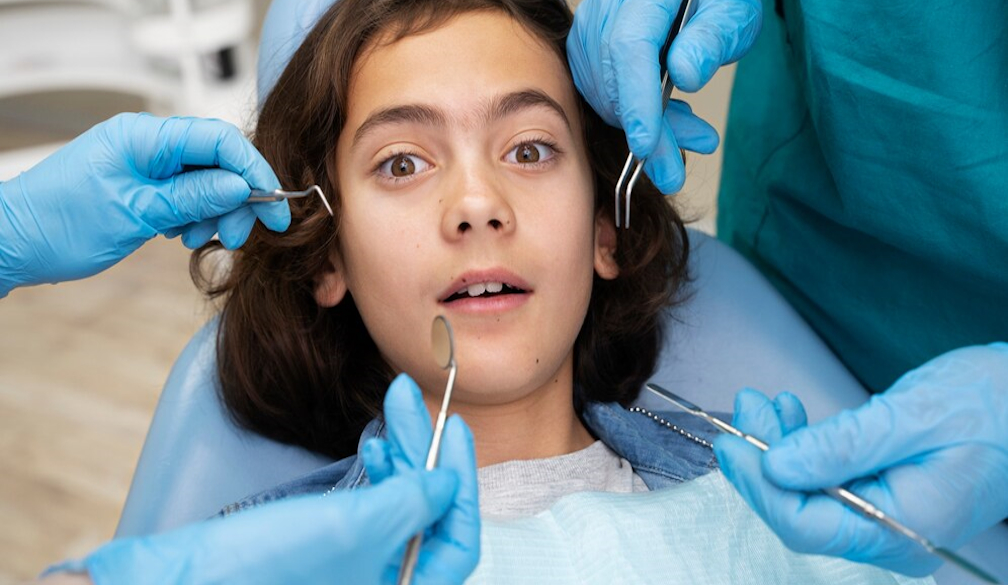The Impact of Cosmetic Dentistry on Children’s Self-Esteem

A bright confident smile may make a big difference in today's society, even for young children. As parents, we frequently prioritize our children's happiness and well-being over their oral health and beauty. Nonetheless, cosmetic dentistry has a profound and wide-ranging effect on kids' self-esteem.
From enhancing their confidence to improving their social interactions, cosmetic dentistry offers numerous benefits that go beyond aesthetics. This article explores the various ways in which cosmetic dentists help children achieve positive self-esteem that helps them to grow into confident and happy individuals.
What Is Cosmetic Dentistry?
Cosmetic dentistry involves dental procedures that improve the appearance of teeth, gums, and smiles. While often associated with adults, children can also benefit from these treatments. Procedures range from teeth whitening to fixing chipped teeth, braces, or even more advanced treatments like veneers.
The primary goal is to enhance the visual appeal of a child’s smile, but the benefits often extend far beyond aesthetics. You can contact the best cosmetic dentist in Adelaide who helps children to enhance their oral health.
The Psychological Impact Of A Smile on Children
A smile can profoundly influence a child's psychological well-being. Children who feel self-conscious about their teeth may hesitate to smile or laugh openly. This self-imposed restraint can impact their social interactions and overall happiness.
Conversely, children with confident smiles are more likely to engage with others, fostering better social skills and higher self-esteem. Let’s explore further and learn in detail:
Appear Friendlier
One of the most immediate benefits of cosmetic dentistry is that it helps children appear friendlier. A bright, confident smile can make a child seem more approachable. Children with healthy, attractive teeth are often perceived as more outgoing and likable. This perception can lead to more positive interactions with peers and adults alike, creating a cycle of positive reinforcement that boosts the child’s self-esteem.
Less Anxious
Children with dental issues might feel anxious about their appearance, particularly in social settings like school or extracurricular activities. This anxiety can manifest in behaviors such as covering their mouth when speaking or laughing less often.
Cosmetic dentistry can alleviate these concerns by addressing the root cause of their anxiety. When children are not worried about their teeth, they are more likely to participate in social activities without fear or hesitation, reducing overall anxiety levels.
More Likely to Smile
Smiling has been linked to numerous psychological benefits, including reduced stress and increased feelings of happiness. When children are happy with their teeth, they are more likely to smile freely. This increased tendency to smile can further enhance their mood and overall sense of well-being. Moreover, smiling can be contagious; when one child smiles, it often encourages others to smile as well, creating a positive environment.
Improved Social Skills
Children with attractive smiles often find it easier to make friends and engage in social activities. This improvement in social skills can lead to better relationships with peers and a stronger support system, which is crucial for emotional development.
Academic Performance
There is also evidence to suggest that children who are happy with their appearance may perform better academically. This boost in confidence can lead to greater participation in class and a willingness to take on new challenges, knowing they are not being judged for their appearance.
Preventative Care and Education
Cosmetic dentistry also promotes better dental hygiene practices. When children undergo cosmetic procedures, they often receive education on maintaining their new smile. This education can instill lifelong habits that prevent future dental issues, contributing to their overall health and well-being.
Parental Influence
Parents play a crucial role in their children's perception of themselves. When parents invest in cosmetic dentistry for their children, it sends a message that their well-being and happiness are important. This support can further enhance the child's self-esteem and encourage a positive self-image.
Conclusion
Cosmetic dentistry is more than just improving a child's smile; it's about enhancing their overall quality of life. By fostering a positive self-image from a young age, parents can help their children grow into confident, happy adults.
If you are considering cosmetic dentistry treatment for your children, you should weigh these benefits and contact one of the professionals at Adelaide Smile and Implant Centre. They have a team of experts who are efficient in using modern techniques, and their center is located at 189 Port Road, Hindmarsh, 5007.
Why are you holding back? Let’s make a call to (08) 8346 3940 to book an appointment.

















